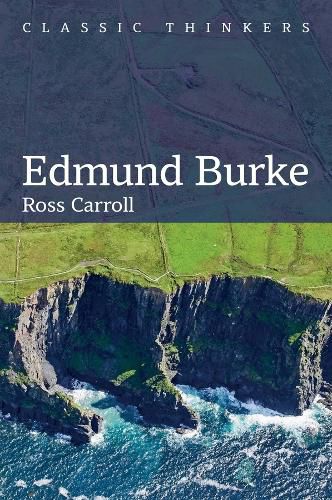Readings Newsletter
Become a Readings Member to make your shopping experience even easier.
Sign in or sign up for free!
You’re not far away from qualifying for FREE standard shipping within Australia
You’ve qualified for FREE standard shipping within Australia
The cart is loading…






Few thinkers have provoked such violently opposing reactions as Edmund Burke. A giant of eighteenth-century political and intellectual life, Burke has been praised as a prophet who spied the terror latent in revolutionary or democratic ideologies, and condemned as defender of social hierarchy and outmoded political institutions.
Ross Carroll tempers these judgments by situating Burke's arguments in relation to the political controversies of his day. Burke's writings must be understood as rhetorically brilliant exercises in political persuasion aimed less at defending abstract truths than at warning his contemporaries about the corrosive forces - ideological, social, and political - that threatened their society. Drawing on Burke's enormous corpus, Carroll presents a nuanced portrait of Burke as, above all, a diagnostician of political misrule, whether domestic, foreign, or imperial. Burke's lasting value, Carroll argues, derives less from the content of his specific positions than from the difficult questions he forces us to ask of ourselves.
This engaging and illuminating account of Burke's work is a vital reference for students and scholars of history, philosophy, and political thought.
$9.00 standard shipping within Australia
FREE standard shipping within Australia for orders over $100.00
Express & International shipping calculated at checkout
Few thinkers have provoked such violently opposing reactions as Edmund Burke. A giant of eighteenth-century political and intellectual life, Burke has been praised as a prophet who spied the terror latent in revolutionary or democratic ideologies, and condemned as defender of social hierarchy and outmoded political institutions.
Ross Carroll tempers these judgments by situating Burke's arguments in relation to the political controversies of his day. Burke's writings must be understood as rhetorically brilliant exercises in political persuasion aimed less at defending abstract truths than at warning his contemporaries about the corrosive forces - ideological, social, and political - that threatened their society. Drawing on Burke's enormous corpus, Carroll presents a nuanced portrait of Burke as, above all, a diagnostician of political misrule, whether domestic, foreign, or imperial. Burke's lasting value, Carroll argues, derives less from the content of his specific positions than from the difficult questions he forces us to ask of ourselves.
This engaging and illuminating account of Burke's work is a vital reference for students and scholars of history, philosophy, and political thought.